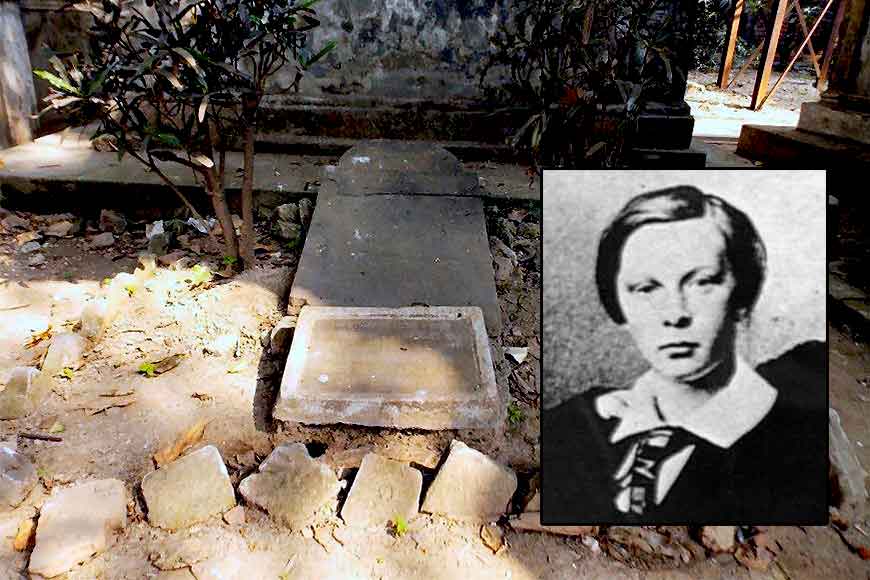looking back Charles Dickens’ son still lies in an obscure grave in Kolkata!

When Charles Dickens was penning down Oliver Twist or David Copperfield, he probably never thought his child protagonists, who loved playing in the mud, would find a link to the dusty rain drenched streets of distant Kolkata. The city’s South Park Street cemetery still holds on to his memories. During monsoons a visit to the cemetery grounds will bring you face to face with a bunch of young boys having a splash with a football. They are all children of the guards of the cemetery or those who work there. But Dickens happens to have a bigger connect with the city, other than of course his books being read and re-read by most school children of Kolkata and being showcased in the city’s leading bookstores, or he being a part of some literary festival.
However, the ghost of Dickens, if at all we are to believe the South Park Street cemetery is haunted, might hover at times over the tomb of Walter Landor Dickens, the second son of novelist Charles Dickens. Yes, does it surprise you to learn that Dickens’ second son lies in an obscure grave of Kolkata? The tomb on his grave is covered with dust and mud, with absolutely none to clean it, lay flowers or light a candle. Even the name on the marble plaque is almost illegible. But how did Walter land up in old Calcutta?
Charles Dickens’ second son was a lieutenant in the British Indian army and died at the age of only 22, in the year 1863. He was originally buried at the Bhowanipore cemetery. However, the grave had disappeared from public memory, until in 1911 a New York Times article titled ‘Dickens’ Soldier Son’ threw some light on the monument. Bhowanipore cemetery in those days was known as Military Cemetery. This burial ground shut doors in 1790. In 1987, some students of Jadavpur University raised funds to move the tombstone of their favourite author’s son – literally the only link of Dickens with Kolkata --- to a new location. And thus, the tombstone found place at the South Park Street Cemetery.
Named after his godfather, English poet Walter Savage Landor, Walter Dickens was asked by his father Charles to join the East India Company army in the year of the Sepoy Mutiny. That’s when Walter reached India and was later stationed in Kolkata. However, his health failed, as he could not adjust to the climate of Kolkata. He suffered from hematemesis or vomiting of blood.
In a letter on his son’s travel to India, Charles Dickens had once written: ‘Having a direct appointment, he will probably be sent out soon after he has passed and so will fall into that strange life up the country, before he well knows that he is alive, or what life is – which indeed seems to be rather an advanced state of knowledge.’ Along with this letter, that has probably missed the public eye, Dickens’ only link to Kolkata also seems to be lying in neglect and oblivion.









